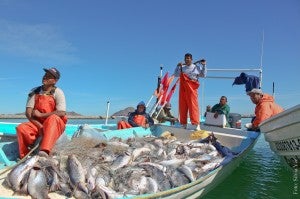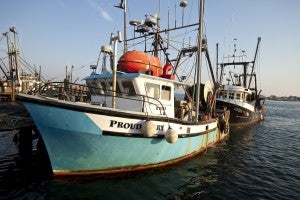
photo credit: cliff1066™ via photopin cc
Congress is about to embark on a review of what has worked and what hasn’t in a law widely regarded as having halted overfishing in many American fisheries. Though we have made progress here in the United States, overfishing is wreaking havoc on the world’s oceans and the mismanagement of our fisheries is the chief cause. Recent peer reviewed science estimates that 64% of global fisheries are depleted below the levels required to sustain production.
Overfishing can lead to the loss of important species that can upend the balance of critical ocean food webs leading to the further degradation of our ocean. To save the ocean, we must end overfishing.
One of EDF’s missions is to rebuild global fisheries with the best possible solutions that serve both fishermen and fish so that future generations can enjoy sustainable seafood, fishermen can continue to fish profitably, and our seas are healthy and abundant. Peer reviewed and published scientific evidence and our decades of experience have shown that catch shares are one of the best solutions for rebuilding depleted fisheries both in the United States and globally. Read More











